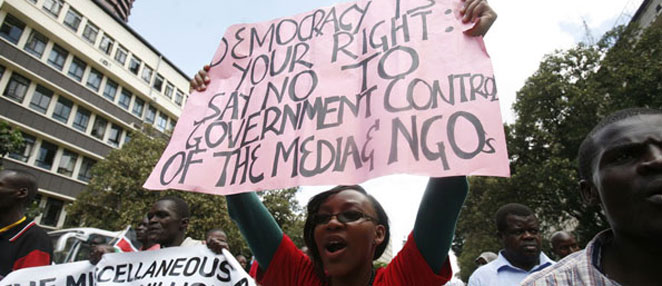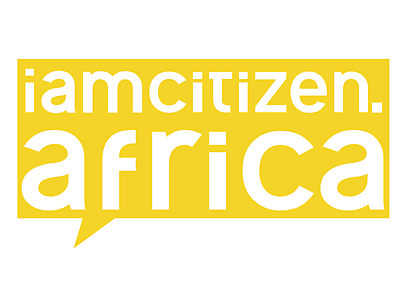What Civil Society Can Do to Develop Democracy
Posted by Janice Scheckter on 15 April 2018, 18:40 SAST

Presentation to NGO Leaders, February 10, 2004,
Convention Center, Baghdad 
Good afternoon. I want to speak to you briefly today about the role that civil society plays in building and strengthening democracy. You are all civil society leaders, who are engaged in this effort in various ways, so I am very pleased to be able to share these ideas with you.
By civil society I mean the entire range of organized groups and institutions that are independent of the state, voluntary, and at least to some extent self-generating and self-reliant. This of course includes non-governmental organizations like the ones in this room, but also independent mass media, think tanks, universities, and social and religious groups.
To be part of civil society, groups must meet some other conditions as well. In a democracy, civil society groups have respect for the law, for the rights of individuals, and for the rights of other groups to express their interests and opinions. Part of what the word “civil” implies is tolerance and the accommodation of pluralism and diversity.
Civil society groups may establish ties to political parties and the state, but they must retain their independence, and they do not seek political power for themselves.
Often in transitions, groups arise that seek to monopolize the lives and thinking of their members. These groups do not tolerate the right of their members to dissent, and they do not respect other groups that disagree with them. Some of these groups may merely be fronts for political parties or movements that seek to win control of the state. These groups are not part of civil society and they do not contribute to building a democracy.
What, then, can the independent, voluntary, law-abiding, tolerant and pluralistic organizations of civil society do to build and maintain democracy?
The first and most basic role of civil society is to limit and control the power of the state. Of course, any democracy needs a well-functioning and authoritative state. But when a country is emerging from decades of dictatorship, it also needs to find ways to check, monitor, and restrain the power of political leaders and state officials.
Civil society actors should watch how state officials use their powers. They should raise public concern about any abuse of power. They should lobby for access to information, including freedom of information laws, and rules and institutions to control corruption.
This constitutes a second important function of civil society: to expose the corrupt conduct of public officials and lobby for good governance reforms. Even where anti-corruption laws and bodies exist, they cannot function effectively without the active support and participation of civil society.
A third function of civil society is to promote political participation. NGOs can do this by educating people about their rights and obligations as democratic citizens, and encouraging them to listen to election campaigns and vote in elections. NGOs can also help develop citizens’ skills to work with one another to solve common problems, to debate public issues, and express their views.
Fourth, civil society organizations can help to develop the other values of democratic life: tolerance, moderation, compromise, and respect for opposing points of view. Without this deeper culture of accommodation, democracy cannot be stable. These values cannot simply be taught; they must also be experienced through practice. We have outstanding examples from other countries of NGOs—especially women’s groups—that have cultivated these values in young people and adults through various programs that practice participation and debate.
Fifth, civil society also can help to develop programs for democratic civic education in the schools as well. After dictatorship, comprehensive reforms are needed to revise the curricula, rewrite the textbooks, and retrain teachers in order to educate young people about the crimes of the past and teach them the principles and values of democracy. This is too important a task to leave only to officials in the education ministry. Civil society must be involved as a constructive partner and advocate for democracy and human rights training.
Sixth, civil society is an arena for the expression of diverse interests, and one role for civil society organizations is to lobby for the needs and concerns of their members, as women, students, farmers, environmentalists, trade unionists, lawyers, doctors, and so on. NGOs and interest groups can present their views to parliament and provincial councils, by contacting individual members and testifying before parliamentary committees. They can also establish a dialogue with relevant government ministries and agencies to lobby for their interests and concerns.
And it is not only the resourceful and well organized who can have their voices heard. Over time, groups that have historically been oppressed and confined to the margins of society can organize to assert their rights and defend their interests as well.
A seventh way civil society can strengthen democracy is to provide new forms of interest and solidarity that cut across old forms of tribal, linguistic, religious, and other identity ties. Democracy cannot be stable if people only associate with others of the same religion or identity. When people of different religions and ethnic identities come together on the basis of their common interests as women, artists, doctors, students, workers, farmers, lawyers, human rights activists, environmentalists, and so on, civic life becomes richer, more complex, and more tolerant.
Eighth, civil society can provide a training ground for future political leaders. NGOs and other groups can help to identify and train new types of leaders who have dealt with important public issues and can be recruited to run for political office at all levels and to serve in provincial and national cabinets. Experience from other countries shows that civil society is a particularly important arena from which to recruit and train future women leaders.
Ninth, civil society can help to inform the public about important public issues. This is not only the role of the mass media, but of NGOs which can provide forums for debating public policies and disseminating information about issues before parliament that affect the interests of different groups, or of society at large.
Tenth, civil society organizations can play an important role in mediating and helping to resolve conflict. In other countries, NGOs have developed formal programs and training of trainers to relieve political and ethnic conflict and teach groups to solve their disputes through bargaining and accommodation.
Eleventh, civil society organizations have a vital role to play in monitoring the conduct of elections. This requires a broad coalition of organizations, unconnected to political parties or candidates, that deploys neutral monitors at all the different polling stations to ensure that the voting and vote counting is entirely free, fair, peaceful, and transparent. It is very hard to have credible and fair elections in a new democracy unless civil society groups play this role.
Finally, I want to stress that civil society is not simply in tension with the state. Because civil society is independent of the state doesn’t mean that it must always criticize and oppose the state. In fact, by making the state at all levels more accountable, responsive, inclusive, effective—and hence more legitimate—a vigorous civil society strengthens citizens’ respect for the state and promotes their positive engagement with it.
A democratic state cannot be stable unless it is effective and legitimate, with the respect and support of its citizens. Civil society is a check, a monitor, but also a vital partner in the quest for this kind of positive relationship between the democratic state and its citizens.
Source: Except taken from a speech given in Baghdad in 2004. No further information available.
